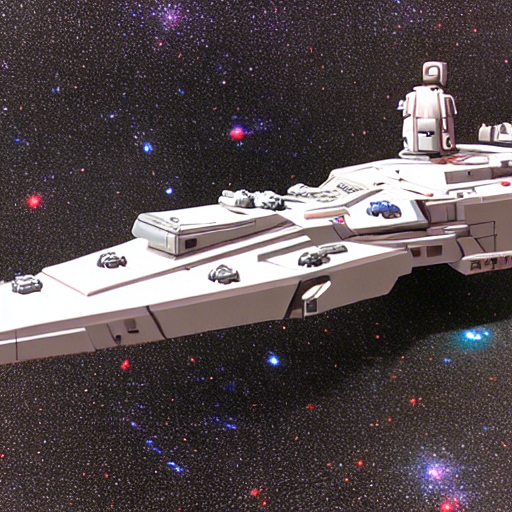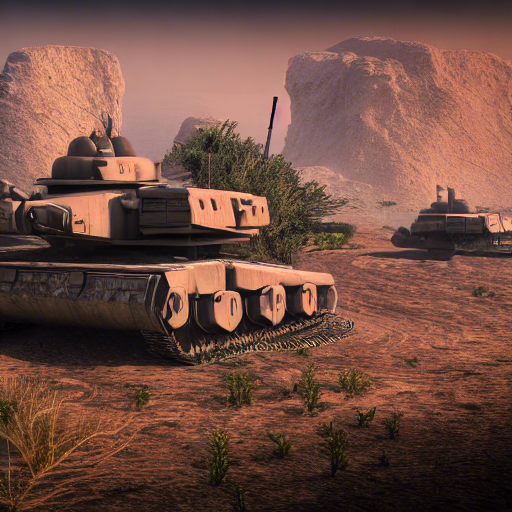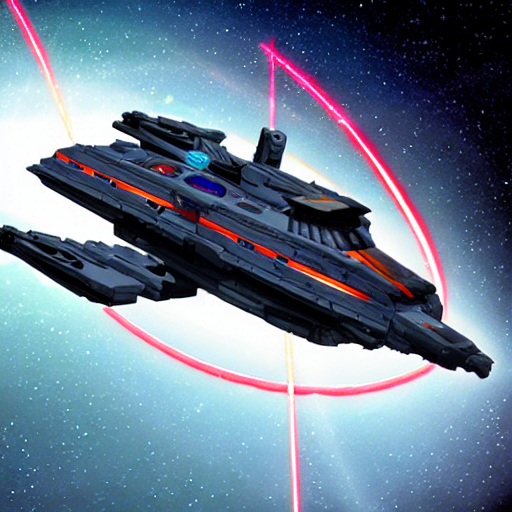
Naval Bases are the strongest, most critical base used by the Confederation to project its power. Over 200 naval bases scattered around the Cluster serve as bastions where marines and military spacecraft may resupply and relax after missions. While each base has a somewhat different complement of ships and troops, they all serve as fortresses and visible symbols of Confederation strength. Destruction of a naval base would create a local emergency and bring forces from around the Cluster to avenge its loss.
All naval bases include both orbital and planetary ports which are heavily restricted. Unlike scout bases, naval bases require all ships, vehicles, and personnel entering any part of the base to undergo a full security check before entry is granted. Armed guards and weapon emplacements are trained to shoot first and question survivors (if any) later. Deadly partisan attacks on early bases established this policy, and subsequent attempts have only reinforced its wisdom. Any secretive or unauthorized approach is considered a hostile act.
While not generally available, assistance from naval bases can be acquired (for a price). Equipped with modern TL14 facilities, they are able to repair even the most advanced craft in known space. There are about 4 times as many naval bases than high tech starports in the Cluster, making naval bases in some regions the only port able to repair certain ships. The CNF uses this situation to keep track of advanced spacecraft and only charges double what commercial yards do for the same job. Naturally ships with any irregular history are barred from receiving services. While naval bases do have repair facilities, no passengers or cargoes (other than those provided directly by the military) are available. Trusted vessels with naval contacts or experience may even be able to barter assisting the CNF in exchange for repairs similar to scout bases. Even familiar ships are carefully searched, however, before being allowed access to naval facilities.

Supplies for ships are kept in abundance at naval bases, and unless there is actual war these stores will be fully adequate for any situation including local emergencies. Food, refined fuel, spare parts, and even full replacement systems will be present for all common naval vessels in the area. Cargo storage, fuel depots, all types of missiles and torpedoes, probes, low berths, spare parts, hospital and medical facilities, etc are all present and kept in excellent working order. Under most circumstances these are restricted for military personnel, but when trouble arrives, the base is prepared. They will typically send their personnel out to help rather than inviting all and sundry into their facilities.
Naval orbital ports are much more spartan than equivalent scout or commercial bases. All shops and establishments are owned and directly controlled by military or ex-military personnel. While food and (some) basic entertainment are available, off duty personnel typically take shuttles to nearby facilities where the full gamut of services are provided. These are usually commercial ports which operate at the planetary tech level and have a traditional startown.
One of the key purposes of naval bases is to provide a base of operations for spacecraft. Different bases have radically different ships present depending upon where they are located. Peripheral bases where systems are often 3 or more parsecs apart require very different ships than central bases where systems are often 1 parsec apart. All naval bases, however, have squadrons of smaller vessels for making routine jumps between Confederation bases as required by law. This web of updates is intended to keep data flowing through all parts of the Cluster as quickly as possible while avoiding choke points that can block the free movement of information.

Each subsector has a naval fleet associated with it that patrols the various worlds of that subsector. Naval fleets do not obey subsector boundaries, so parts of the 95th fleet might be based in [9,5] Tugxyvan, [9,6] Lerisgan, or [10,5] Werkel. This is important because several subsectors currently lack naval bases such as [2,1] Heux or [5,8] Kinrip. The 21st and 58th fleets do exist, and are found at naval bases in neighboring subsectors. Whenever necessary, ships move between subsector fleets on a routine basis to improve cooperation or when a particular opponent requires the extra punch of a joint fleet operation.
Every naval base can call upon a significant force of spacecraft for its local defense. Minimal active forces include a squadron of battleships, 2 cruiser squadrons, 4 destroyer squadrons, and 6 squadrons of frigates or couriers. Troop ships, tankers, freighters, covert operations vessels and squadrons of small craft round out the naval complements. Bases in highly populated systems will have even more combat craft available, most held in reserve fleets of capital ships that are cycled in and out of the active fleet due to budgetary considerations.
Bases have at least a brigade of marines (~4,000 troops) and oftentimes more for its immediate defense. At least 1 battalion of marines are always ready to board a troopship and respond to immediate threats within a small jump radius. Station marines will be prepped mostly for space combat operations, while the downport has stocks of armored vehicles, artillery and transports more appropriate for ground combat. Larger naval bases will have a division or more of troops permanently based in key sectors where they can act as needed. Unfortunately information and ships both move at the speed of jump, meaning that any reaction to events in other systems take a minimum of 2 weeks. Proactive traps organized by Scouts or local agents often yield much more immediate results as ships can be positioned to take advantage of the situation.

Both orbital bases and downports are heavily defended by intrinsic weaponry in addition to their spacecraft and troops. Deep meson batteries, meson shields, and nuclear dampers are standard equipment at all naval bases, and black globes are starting to be deployed as an even more sophisticated defense against attacking vessels. Combined with their spacecraft and marines, naval bases are able to defeat most regional military threats on their own. No single naval base, however, can defeat the massed might of an advisory world fleet in its home system. While they may put up a good fight, the best they can hope for is to be avenged as the other 200+ bases mass their firepower to end the civil war.
Many bases have a reserve fleet of capital ships kept in storage for major conflicts. Capital ships take multiple years to construct, and time constraints make building more warships unworkable in the short and medium term. Ships are regularly rotated between the active and reserve fleets to keep the vessels in top operating condition, and it is common for a crew to return from one mission, switch ships, and immediately head out again in a different ship of the same type. The inactive reserve fleets are kept well guarded in a restricted area of a system (often near a distant gas giant) and will be manned by previously discharged reserve personnel in the system in case of mobilization. They have their own defensive fleet of ships which are drawn from the reserve fleet as part of the active rotation. While a system may rebel against the Confederation, there has never been a case where enough major worlds rebelled simultaneously that threatened the integrity of the CNF response.

Naval bases are always commanded by at least an admiral, with larger bases commanded by higher ranked admirals. The admiral has both an executive officer (XO) and chief of staff who are 1 rank lower than the commanding officer. The 4 main sections (intelligence, adjutant, logistics, operations) are commanded by an officer 1-2 ranks below the base commander. Staffing varies, but each section has at least a platoon of officers and enlisted sailors carrying out the work of that section. Larger naval bases may have as many as a company (~150-200) working in each section.
The adjutant section is one of the most important offices at any naval base. They are responsible for discipline, promotions, and transfers among the postings controlled by that base. Officers spend considerable time trying to acquire the most prestigious commands, and political machinations occur daily in the base and on the planet. Even regular sailors will have preferred ships and commanders, while some stations may be as much a punishment detail as a posting.

Naval bases also have at least two associated commands beyond the base itself. The marine contingent is commanded by an appropriately ranked general, with a brigade typically commanded by a brigadier general. The brigade or larger unit has its own hierarchy of officers who carry out the marine commander's orders. The marine adjutant officer works closely with the naval base/fleet adjutants to assign marines to naval ship crews. The ships stationed at the naval base are also typically commanded by an independent admiral who may outrank the naval base commander. Fleet admirals are found at the most important (according to the navy) naval base for each of the 80 numbered subsector fleets. This can mean that there are two different fleet admirals at certain bases, along with all of the supplemental staff each fleet requires for its operations. While independent, they all typically work closely with the base commander to take care of the ships and logistics of fleet requirements.
More than 80% of naval bases also have consulates in the same system. The consulates typically consult with the naval base on matters of law and work to make sure naval actions are carried out in accordance with Confederation principles. While circuit judges typically travel aboard scout vessels between systems, they will often confer with naval officers regarding their ability to enforce potentially unpopular decisions. While only the advisory council can invoke force directly, law cases which prove illegal actions which threaten the Confederation come under standing orders for the CNF to interfere as quickly as possible. These cases do not involve trade, but would include things like illegal drug factories, slavery, or piracy.